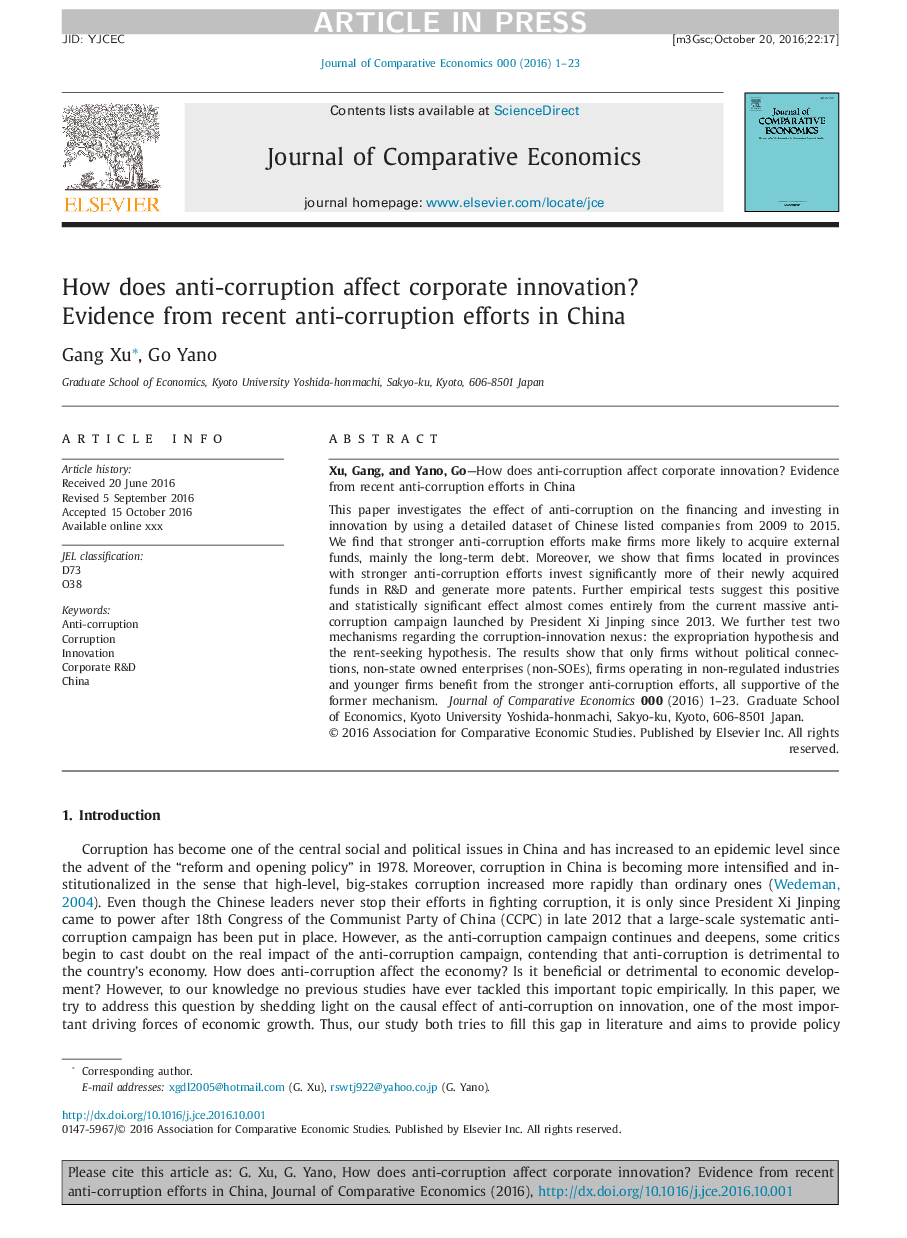| Article ID | Journal | Published Year | Pages | File Type |
|---|---|---|---|---|
| 5092014 | Journal of Comparative Economics | 2017 | 23 Pages |
Abstract
This paper investigates the effect of anti-corruption on the financing of and investing in innovation by using a detailed data set of Chinese listed companies from 2009 to 2015. We find that stronger anti-corruption efforts make firms more likely to acquire external funds, mainly the long-term debt. Moreover, we show that firms located in provinces with stronger anti-corruption efforts invest significantly more of their newly acquired funds in R&D and generate more patents. Further empirical tests suggest this positive and statistically significant effect almost comes entirely from the current massive anti-corruption campaign launched by President Xi Jinping since 2013. We further test two mechanisms regarding the corruption-innovation nexus: the expropriation hypothesis and the rent-seeking hypothesis. The results show that only firms without political connections, non-state owned enterprises (non-SOEs), firms operating in non-regulated industries and younger firms benefit from the stronger anti-corruption efforts, all supportive of the former mechanism.
Related Topics
Social Sciences and Humanities
Economics, Econometrics and Finance
Economics and Econometrics
Authors
Xu Gang, Go Yano,
